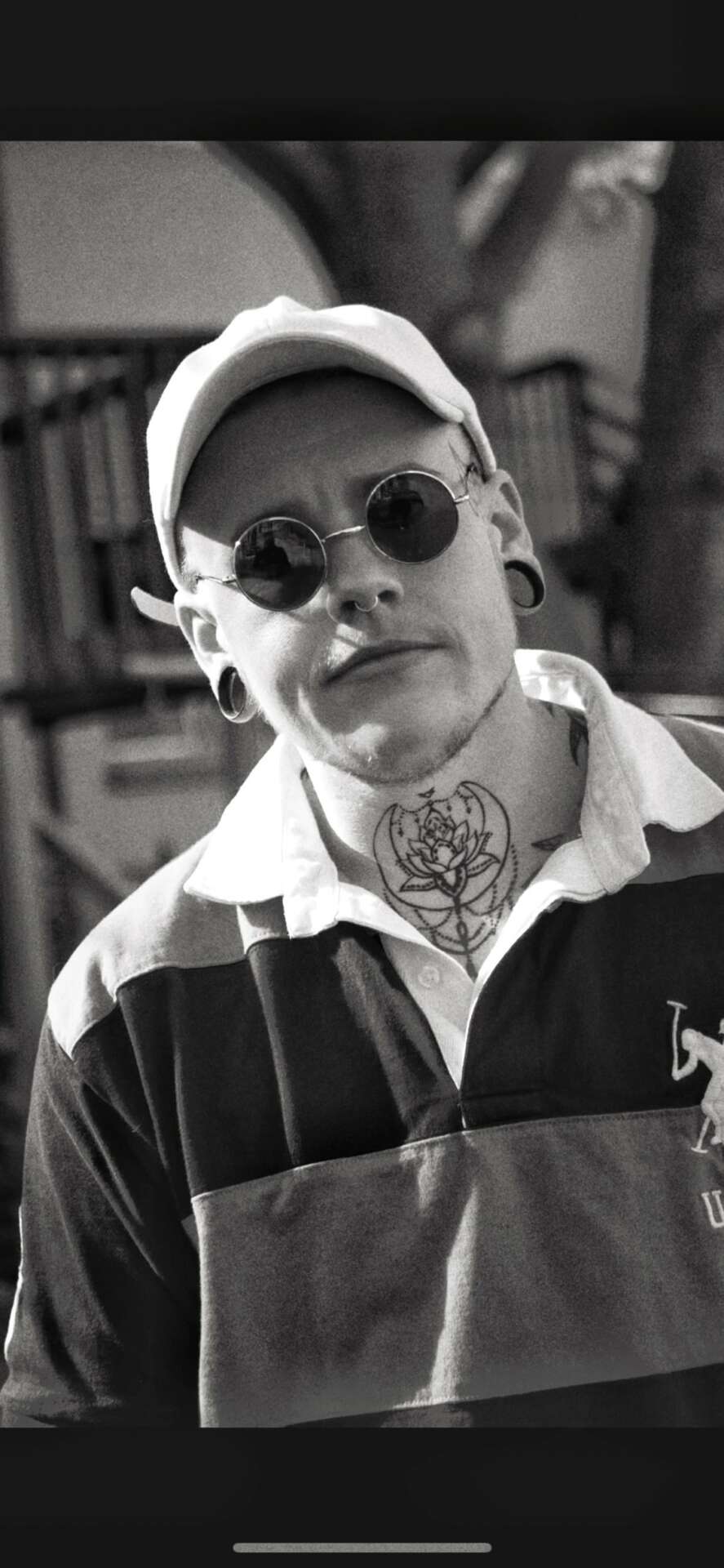We were lucky to catch up with Jordin Dearinger recently and have shared our conversation below.
Hi Jordin, thanks for joining us today. How did you learn to do what you do? Knowing what you know now, what could you have done to speed up your learning process? What skills do you think were most essential? What obstacles stood in the way of learning more?
When I was 11 years old I broke my back racing dirt bikes and was left on bedrest for 5 years because of 3 major spinal surgeries. My mom connected with my band director in middle school and he would bring instruments to my house so that I could teach myself how to play them. I learned from a really early age that music is a way better coping mechanism than pharmaceuticals. I taught myself how to play 14 instruments from ages 11 to 16, and then after high school I attended Berklee College of Music and got my degree in Music Therapy so that I could help other kids heal with music too. Now, as a 26 year old man, I am a part time music therapist, music teacher, and full time independent artist producing my own music and releasing singles every Friday.


Jordin, love having you share your insights with us. Before we ask you more questions, maybe you can take a moment to introduce yourself to our readers who might have missed our earlier conversations?
I am a transgender man who came out as queer at 13 years old, and then later in life came out as a trans man at age 19. I studied at Berklee College of Music amongst some of the most talented musicians in the world, where I learned a lot about music & psychology, networking, producing, and recording. I am an avid lover of vulnerability and the ways that it can drive connections, and I try to carry that perspective into any work environment I’ve entered so that people feel safe to be themselves around me, and I think that sets me apart from others who are not willing to do the emotional work of discovering their true needs or aspirations. I am most proud of my journey as a producer and recording engineer, as the quality of my work gets better everyday that I devote hours of my energy to my craft. I create thrifted and hand made merchandise that my business partner KJ Grinna and I co-create and screen print ourselves.
We’d love to hear a story of resilience from your journey.
As a transgender man, coming out and dealing with the rejection of society was a huge hit to my ego, and left me feeling like I didn’t want anyone to see me or know me because so many important people in my life rejected me when I came out as trans. Because of that, I did not sing publicly for about 4 years, and within the last year and a half, I’ve done so much inner work to understand myself more and to understand that the weight of anybody else’s opinion on my life is not my weight to carry. Having those realizations helped me to start putting one foot in front of the other and producing music again, which led to wanting to perform my music, and find spaces that would let me perform and also pay me an amount that suits my value. Being an independent artist has been a telling journey surrounding how I choose to see my own value and how high that value is.



What can society do to ensure an environment that’s helpful to artists and creatives?
I think the best way anyone can support artists is from the inside, out. Supporting small artists instead of shrugging them off for not being “big” artists is a great start. I feel most supported when my fans share my music online to build my platform, and when my fans purchase my merchandise. Especially for me, releasing new pieces of merchandise every month, it is the most meaningful to me when the same people are wanting to buy our newest designs. In general, letting go of the idea that big artists are better, and streaming/ sharing local artistry is such a supportive way to lift the local music scene.
Contact Info:
- Website: JordinDearinger.com
- Instagram: @jordindearinger
- Youtube: @JordinDearinger7231
Image Credits
Cat Evans Olivia Parvin Dream Robbins


